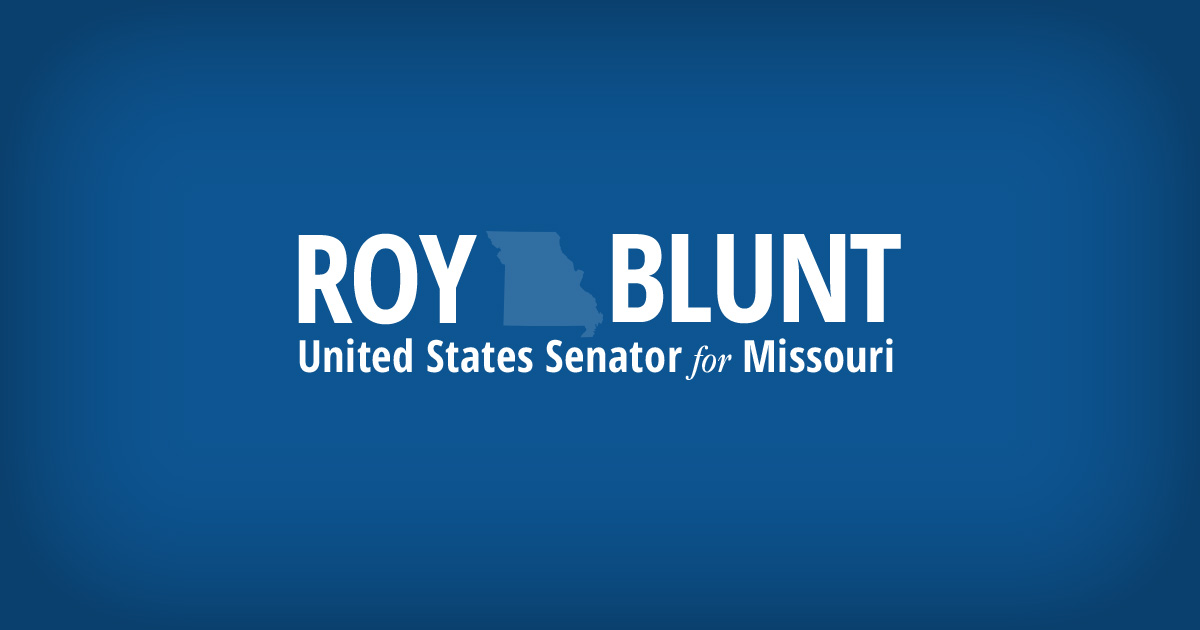Source: United States Senator for Missouri Roy Blunt
WASHINGTON – Last week, U.S. Senator Roy Blunt (Mo.), along with the entire Senate Republican Conference, sent a letter urging the Environmental Protection Agency (EPA) and the U.S. Army Corps of Engineers (USACE) to suspend the pending rulemaking to redefine the scope of waters protected under the Clean Water Act (CWA), specifically “waters of the United States” (WOTUS), until the U.S. Supreme Court completes its consideration of Sackett v. EPA, a case that is expected to have major implications on CWA scope and enforcement.
The senators argue that it would be irresponsible for EPA and USACE to proceed with a rulemaking that could be invalidated or significantly altered as early as this summer. They also criticize how the regulatory overreach proposed by the rule would “snarl American economic sectors in red tape” and impose significant uncertainty to a range of stakeholders, especially farmers and ranchers. The letter was led by U.S. Senator John Thune (S.D.).
“The federal government should not promulgate rules for the sake of political expediency, but rather provide regulatory certainty for stakeholders within the bounds of an agency’s respective statutory authority,” the senators wrote. “Proceeding with the rulemaking at this time, despite the pending litigation and potentially influential ruling, will only deepen uncertainty within the regulated community.”
“We are foremost troubled to see that the proposed rule exceeds the regulatory authority granted to EPA and USACE by the Clean Water Act,” the senators continued. “The proposed rule seeks to federalize waters in a land grab that arguably surpasses its 2015 predecessor, improperly encompassing water features traditionally within the sole purview of states, while reverting from the comparative straightforward application of the 2020 Navigable Waters Protection Rule … and interjecting new uncertainties for nearly every private sector stakeholder.”
To read the letter, click here.
BACKGROUND:
In 2015, the Obama administration finalized a rule that expanded the definition of the Waters of the United States, creating confusion and burdensome red tape for farmers and ranchers, developers, and property owners. Under the rule, more than 99% of Missouri land would fall under the jurisdiction of the EPA and USACE. Blunt called on the EPA and USACE to abandon the rule and introduced legislation to halt it.
In January 2017, Blunt praised the Trump administration’s move to withdraw the Obama administration’s WOTUS rule and replace it with a more commonsense approach. In January 2020, Blunt commended the Trump administration’s revised rule, known as the Navigable Waters Protection Rule (NWPR), that provided much-needed predictability and certainty for farmers by establishing a clear and reasonable definition of what qualifies as a “Water of the United States.” Specifically, the NWPR established a definition that unambiguously identifies four simple categories of jurisdictional waters, provides clear exclusions for many water features — water features that traditionally have not been regulated at the federal level — and defines terms in the regulatory text that have never been defined before. The NWPR also protects the environment while respecting the cooperative federalism framework of the Clean Water Act by clearly delineating where federal regulations apply and giving states and local authorities more flexibility to determine how to best manage waters within their borders.
On day one of his administration, President Biden signed an executive order rolling back the Trump administration’s action to rescind Obama’s WOTUS rule and finalize the NWPR. In January 2021, Blunt joined 25 of his Senate colleagues to introduce a resolution that expresses the need for the U.S. Senate to uphold the NWPR.
Last year, Blunt helped introduce legislation that would prevent Democrats from reinstating their WOTUS rule.
Read more about Blunt’s extensive efforts to stop the WOTUS rule here.
